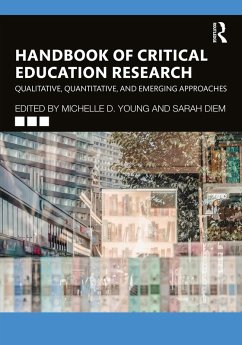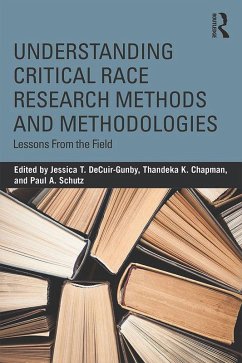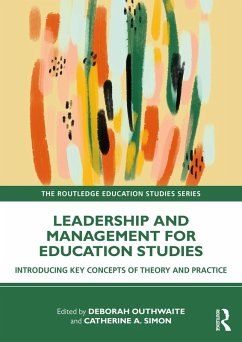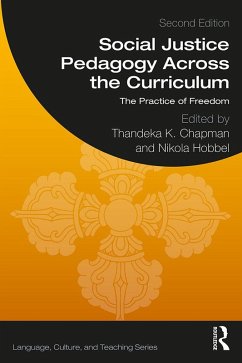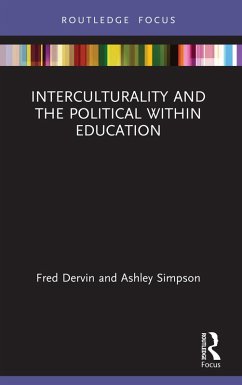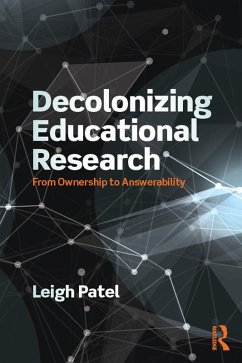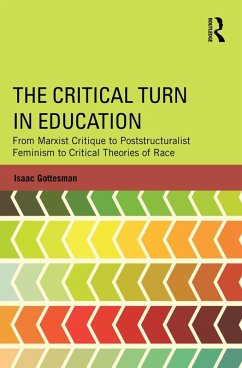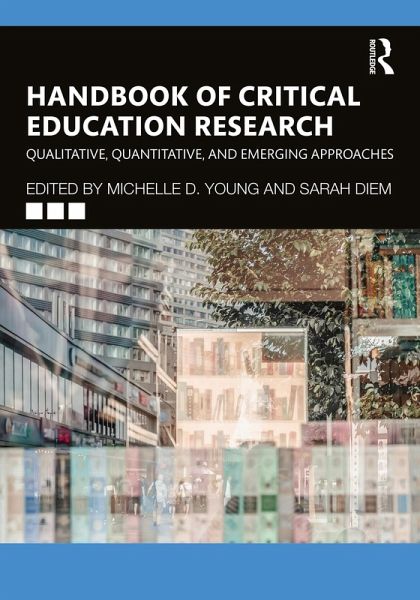
Handbook of Critical Education Research (eBook, ePUB)
Qualitative, Quantitative, and Emerging Approaches
Redaktion: Young, Michelle D.; Diem, Sarah
Versandkostenfrei!
Sofort per Download lieferbar
103,95 €
inkl. MwSt.
Weitere Ausgaben:

PAYBACK Punkte
52 °P sammeln!
This handbook offers a contemporary and comprehensive review of critical research theory and methodology. Showcasing the work of contemporary critical researchers who are harnessing and building on a variety of methodological tools, this volume extends beyond qualitative methodology to also include critical quantitative and mixed-methods approaches to research. The critical scholars contributing to this volume are influenced by a diverse range of education disciplines, and represent multiple countries and methodological backgrounds, making the handbook an essential resource for anyone doing cr...
This handbook offers a contemporary and comprehensive review of critical research theory and methodology. Showcasing the work of contemporary critical researchers who are harnessing and building on a variety of methodological tools, this volume extends beyond qualitative methodology to also include critical quantitative and mixed-methods approaches to research. The critical scholars contributing to this volume are influenced by a diverse range of education disciplines, and represent multiple countries and methodological backgrounds, making the handbook an essential resource for anyone doing critical scholarship. The book moves from the theoretical to the specific, examining various paradigms for engaging in critical scholarship, various methodologies for doing critical research, and the political, ethical, and practical issues that arise when working as a critical scholar. In addition to mapping the field, contributions synthesize literature, offer concrete examples, and explore relevant contexts, histories, assumptions, and current practices, ultimately fostering generative thinking that contributes to future methodological and theoretical breakthroughs. New as well as seasoned critical scholars will find within these pages exciting new ideas, challenging questions, and insights that spur the continuous evolution and grow the influence of critical research methods and theories in the education and human disciplines.
Dieser Download kann aus rechtlichen Gründen nur mit Rechnungsadresse in A, B, BG, CY, CZ, D, DK, EW, E, FIN, F, GR, HR, H, IRL, I, LT, L, LR, M, NL, PL, P, R, S, SLO, SK ausgeliefert werden.




